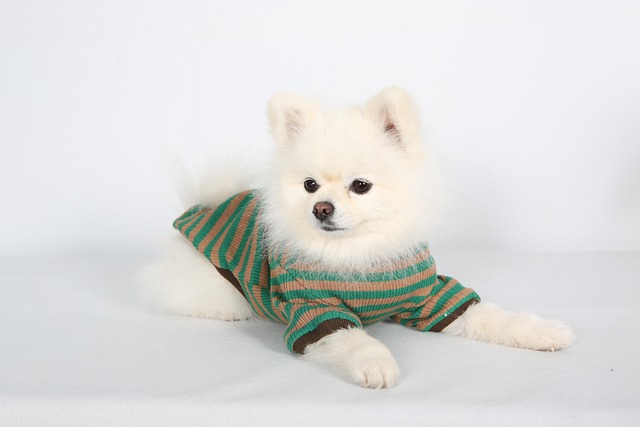
What vitamin is good for dogs' skin
Seeing your dog constantly scratch or noticing dry, flaky skin can make you wonder if a simple vitamin might be the solution.
If you’re a new dog parent in the US—maybe you’re standing in your Denver apartment’s kitchen, staring at a bag of high-quality puppy kibble and a bottle of “puppy multivitamins” you picked up on a whim, while your 9-week-old Goldendoodle, Charlie, chews on his toy bone—you’ve probably asked: Is his food already enough? Will adding supplements help him grow better? It’s a common worry, but the answer isn’t “yes” or “no”—it depends on your puppy’s breed, health, and the food you’re feeding. Let’s break this down so you can make the right choice for Charlie.
First, let’s keep the science simple: Puppies need specific nutrients to grow—protein for muscles, calcium for bones, and omega-3s for brain development. Most commercial puppy foods labeled “complete and balanced” (look for the AAFCO statement on the bag) already have all these in the right amounts. Supplements only help if there’s a gap—like large-breed puppies (think Great Danes or Labradors) needing extra joint support to avoid growth-related issues, or puppies with sensitive tummies needing probiotics to calm their gut. My friend Mia in Texas learned this with her 10-week-old Corgi, Lua: Lua had loose stools for a week until Mia’s vet suggested adding a puppy-specific probiotic to her food—within 4 days, Lua’s poop was firm, and she started eating with more excitement. But when Mia tried adding a multivitamin too, the vet said it was unnecessary—Lua’s food already had all the vitamins she needed.
Here’s how to decide if you should add supplements to your puppy’s food, step by step: Start with a vet visit—always ask your vet first. They’ll check Charlie’s breed (large breeds have different needs than small ones) and review his food to see if it’s missing anything. If your vet says a supplement is needed—like glucosamine for joint health or probiotics for digestion—pick a puppy-specific product (human supplements can have ingredients that hurt puppies). For apartment living, mix supplements into his food gently: sprinkle powdered probiotics over kibble, or hide a soft joint chew in his meal as a “treat.” Use positive reinforcement to make it easy: say “good eat!” when he finishes his food with the supplement, and give him a quick belly rub—never force the supplement or scold him if he hesitates (punishment goes against US animal welfare norms and makes mealtime stressful). Skip “general multivitamins” unless your vet recommends them—too much of some vitamins (like vitamin D) can make puppies sick.

Now, let’s tie in rules and habits that matter. Every US state requires core vaccines (distemper, parvovirus)—a balanced diet (with or without supplements) helps your puppy’s immune system respond better to shots, but supplements aren’t a replacement for vaccines. Skipping vaccines could get you fined $150+ in California or New York, so keep those appointments even if you’re focused on his diet. When you walk your puppy (to help his joints and digestion), always clean up his poop—cities from Seattle to Boston fine up to $300 for leaving waste, and his stool can tell you if the supplement is working (firm, regular poop means it’s a good fit). For apartment living, avoid giving table scraps (even a bite of cheese) alongside supplements—scraps add extra calories and can throw off the nutrient balance in his food. At the dog park, don’t let other owners give your puppy treats—stick to his regular food and vet-approved supplements to avoid upsetting his gut.
Adding supplements to puppy food isn’t about “doing more”—it’s about doing what’s right for your pup. With vet guidance and a focus on his specific needs, you’ll know exactly when (and if) to add something extra. Before you know it, Charlie will be growing strong, eating happily, and chasing his toy around your apartment—proof that a balanced diet (with or without supplements) is the best foundation for his health.

Seeing your dog constantly scratch or noticing dry, flaky skin can make you wonder if a simple vitamin might be the solution.

If you’re a new dog parent in the US—maybe you’re sitting on your Portland apartment couch, staring at your 1-year-old Australian Shepherd

If you’re a new dog parent in the US—maybe you’re sitting on your Atlanta apartment floor, holding your 6-week-old Beagle puppy, Daisy, who’s curled up in your lap

If you’re a new dog parent in the US—maybe you’re standing in your Denver apartment’s kitchen, staring at a bag of high-quality puppy kibble and a bottle

Seeing your puppy grow daily is amazing, and it’s natural to want to give them every advantage, including supplements.

Brown stains on white dog fur aren’t just unsightly—they can also hint at underlying issues like tear duct irritation or poor grooming habits, which matter even more when you’re following local pet care laws.